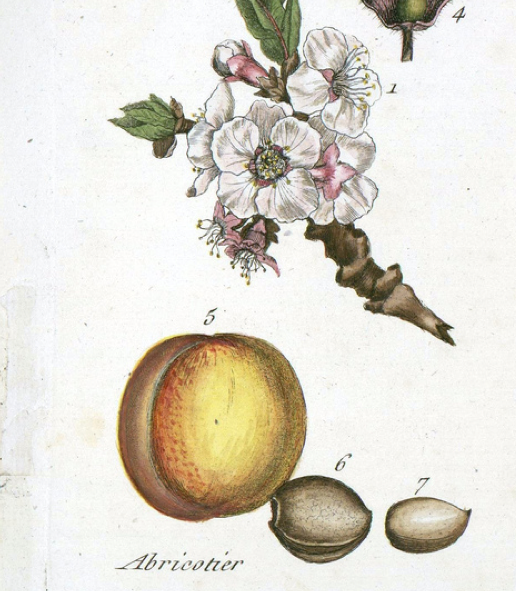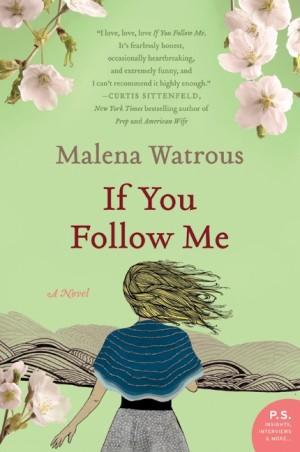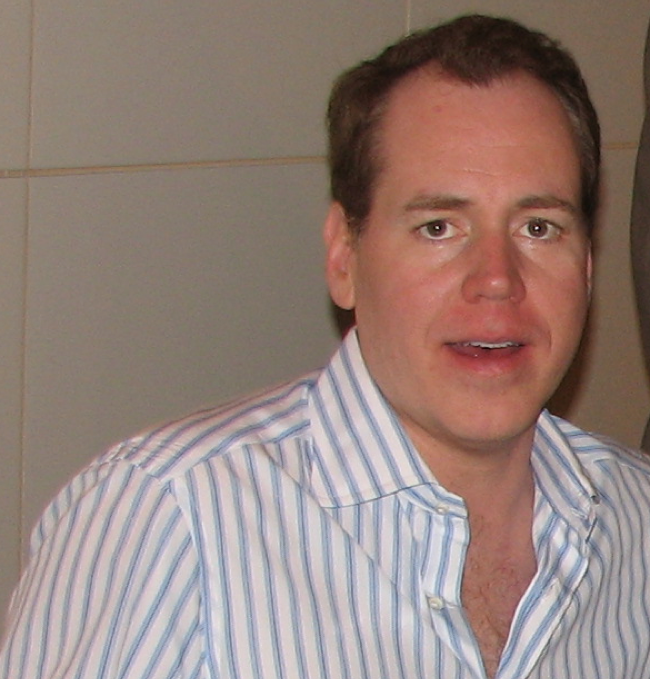The Good News About Old Age (For Drunks)

This article is headlined “Why Getting Old Means Drinking Less,” but I think that’s a remarkably pessimistic way of looking at things. Consider:
The National Institutes of Health’s Senior Health Web site today issued new warnings about alcohol and aging, reminding people 65 and older that even a few drinks can hit them harder than in their youth.
The reason is that older people metabolize alcohol more slowly, and they also have less water in their bodies. The result is that an adult who consumes just a few glasses of wine will have a higher percentage of alcohol in his or her blood than a younger person drinking the same thing. That’s why you may start feeling tipsy sooner after consuming alcohol, even if your drinking habits are the same as always.
As someone who dreads each passing day not only for what it will bring but because of the terrible accretion of painful memories and poor choices, I have to say that this is a ray of hope that makes me marginally less desirous of a swift passing. I mean, couldn’t we really just call this piece “Why Getting Old Means Spending Less To Get Drunk More Quickly?” Why accentuate the negative?
The Pavlovsk Experimental Station
by Mary Phillips-Sandy

Earlier today, to absolutely no one’s surprise, a Russian court decided to let a state-backed residential development fund proceed with its plan to build houses on a field in Pavlovsk, outside St. Petersburg. The reason this mundane matter even reached a court is that the field is presently inhabited by thousands of rare fruits and berries, better known as the historic gene bank of the Pavlovsk Experimental Station.
What does this mean for those of us who will want jam on our toast even after the apocalypse comes? And what does it mean for Russia, which is having its own apocalypse problem right now?
The Pavlovsk station is operated by the Vavilov Institute of Plant Industry, a research center founded by botanist Nikolai Vavilov in 1926. (Before the current controversy, one key fact about the Institute was that several Russian scientists starved to death at its headquarters when Leningrad was under siege, because they refused to eat their collections.) The station in Pavlovsk includes thousands of samples of berries, apples, cherries and other fruits, most of which do not exist anywhere else, but unlike this James Bond-ish vault in the mountains of Norway, the Pavlovsk station is not a seed bank. Some uncooperative plants can’t be replicated exactly from frozen seeds, so keeping them and their fruits alive, in the dirt where they are, is the only way to preserve their genetic information.
So the uproar was understandable when, last Christmas, Russia’s Ministry of Economic Development transferred rights to the Pavlovsk station land to a state-run fund for residential development. This transfer was possible because the information-laden dirt Pavlovsk uses is public land-and anyway, in a land-use conflict between a scientific research institute and the Russian Ministry of Economic Development, there’s probably no contest.
Despite receiving a flurry of impassioned tweets, the Russian government seems to be taking a hard line on the Pavlovsk field. A housing agency spokesman has denied that the gene bank collection exists at all, and the Global Crop Diversity Trust has characterized the development fund’s twisted logic thus: if the Pavlovsk collection is priceless, that means it has no value. Therefore it isn’t worth anything.
This is a familiar challenge, trying to cram a field or a mountain or a lake or the air into the confines of economic valuation. But gene banks like Pavlovsk are particularly difficult, their value extra-hypothetical to anyone (let alone a bureaucrat!) running the numbers. Safeguarding endangered fruits may not mean much to the average citizen right now, but it means something-perhaps something important-to the public at large, and to the world of the future. It’s the collective spirit at its best.
And maybe that’s the problem. Private land ownership is still a fairly new concept in Russia, and since 2008 there’s been a concerted effort to convert public land into private housing. Of course it’s the government that’s driving this effort, that’s why it created this federal development fund in the first place. According to President Medvedev and Prime Minister Putin, residential development is “the Russian dream,” the realization of which will liberate millions of citizens from their blocky Soviet apartment buildings and encourage them to procreate.
Anyway, the Vavilov Institute plans to appeal the lower court’s ruling to the Russian Supreme Arbitration Court, so the decision can still be overturned by a judge or by government intervention. (Maybe it is time to start leaving notes on Medvedev’s LiveJournal?)
Or not, and there will be bulldozers, and then there will be houses for sale in Pavlovsk, with prices based on market mechanisms and whatever fixes are in place, with some extra for profit. People will move in and eat toast and jam and drive to work, and maybe the children who live in the houses will feel nostalgic about them later, especially after they get razed for a bigger development. That feeling you get when you remember your family sitting in the kitchen, all of you together before you were old, that’s another valuable thing that has no value. Who knows? Maybe one of these children will grow up to write a moving play called The Residential Housing Development Orchard, and a hundred years from now the world of the future, drunk on bio-pellet wine, will applaud its performance.
Mary Phillips-Sandy lives in Portland (not Oregon).
Photo from Flickr by Vintageprintable1.
Here Is What A Storm Looks Like In Finland
This video of a storm approaching Hietaniemi Beach near Helsinki, is an intense remind of the Awesome Power of Nature. Between the severe weather and the smoke from the fires in Russia, they’ve had a rough go of it over there in Finland.
Man Grows Pea Internally
You hear the one about the fella with the pea plant growing inside his lung? Crazy, right? Still, as a heavy smoker myself, it’s nice to know that a guy with a lifelong habit can still provide fertile ground for living things. It’s less nice to know that he has emphysema, but such is life.
Cooking the Books: How to Make Spicy Tuna Salad Sushi, with Malena Watrous
This time on Cooking the Books: Malena Watrous, author of If You Follow Me, a novel about young people teaching English in rural Japan, helps Emily Gould make sushi. Cooking the Books is directed by Valerie Temple and shot and edited by Andrew Gauthier.

Previously: Will Leitch, Julie Klausner, Joanna Smith Rakoff.
Orangutans Can Mime (Which Is Not To Say They Should)

Sophomore year of college, a few of my friends and I took a train to Boston to go to the annual J.Crew barn jacket and drink-til-you-puke festival known as the Head of the Charles. Soon after arriving, we took the T to Harvard Square, where we were supposed to meet some people to drink the scorpion bowl thing at a Thai restaurant there. But when we got to the top of the stairs to the street, we found ourselves in a large crowd of people watching a family mime troupe performing their routine in order to raise money for a Christian charity organization. After watching along for a minute, we were about to move on when a man with an unkempt beard and green army coat walked out onto the bricks between the performers and the audience. He stopped, looking just like Belker from Hill Street Blues, glared around at all the eyes on him and shouted “I hate mimes!” Then he hunched his shoulders down into his coat and stomped away.
Hopefully, he was not on his way to Indonesian Borneo. Because if he was, he might really have had a problem with the orangutans there. A team of scientists working in the area report that orangutans engage in more complex thinking processes than had previously been attributed to them, and they display this through pantomime. As Kristin Andrews of Glendon College told Discovery’s Jennifer Viegas,
“Pantomime, like language, can be used to declare, lie, request, reminisce, tell stories, teach, explain and more. We saw cases of pantomime used to request and to deceive, which are typical examples of great ape communication but, interestingly, we also report one case of pantomime used to tell a story, to reminisce and to make a statement.”
Apparently, besides being able to indicate a right turn signal, orangutans use pantomime to communicate with human researchers, and also with other orangutans, expressing ideas like, “scratch me with this stick,” “eat this fruit,” and “wipe your dirty face off with this leaf.” Which is totally cool, as long as they don’t do the drawing-a-door-in-the-air-opening-it-and-stepping-through thing.
Steven Slater's Dreams
Even the CORRECTIONS in the Steven Slater story are awesome: “Because of an editing error, an earlier version of this story incorrectly reported that Steven Slater said he had always wanted to chew out rude passengers.” (Slater’s long-held dream was actually to go down the escape chute.) [Via]
Arizona Crime: The Mexican Kidnapping Industry
“Lieutenant Burgett recalled another drop house where a 12-year-old boy was taking a piano lesson in the living room, while immigrants were held for ransom in a bedroom.”
-You know that whole untruth that politicians like John McCain and John Kyl were pushing, about violent crime exploding in Phoenix, due to border immigration? (Not true! Crime down!) Well it’s also instructive to look at what the violent crime menace in Arizona includes-like the mass kidnapping and torture and ransoming of Mexicans, perpetrated by American citizens.
Privileged Child Of Former Veep Will Bust Some Heads In DC, Okay?
David Weigel calls this ad for Arizona congressional candidate Ben Quayle-yes, spawn of Dan-”all the best parts of Alabama viral videos boiled down and utilized by the handsome son of a vice president.” Ben, 33, is also an important object lesson for the kids in these Internet-crazy days: Anything you put on the web-even if you were posting “under the pseudonym ‘Brock Landers,’ a reference to a porn star in the movie ‘Boogie Nights,’”- will eventually come back to bite you in the ass.
Bret Easton Ellis in Australia: "It Was Really About Me"
by Elmo Keep

The place where Bret Easton Ellis came to talk about his new novel Imperial Bedrooms could best be described as Bret Easton Ellisian. It is a rock club on Sydney’s Oxford Street, called the Oxford Art Factory, that looks and feels like it was modeled on a party from the film version of Less Than Zero. It’s split into two rooms divided by a huge floor to ceiling window of sound-proof glass. One room houses DJs and a giant wall given over to a rotation of street artists who paint it over every few months. The other room is the band room, with a stage and tiers. There’s a popcorn vending machine, and a black and white photo-booth. It’s of course where Robyn played about three years ago, and “no one knew who she even was, man.” Things inside there are either neon or white, or black, and lit with red lights or strobes. The bathrooms are notable for just how many surfaces in them are covered in mirrors.
The crowd was warmed first by a set from Models, an Australian synth band who were last of cultural note in the mid-80s, contemporaries of INXS. It was hard to tell if their somewhat rickety performance was meant to be metacommentary, in light of how in Imperial Bedrooms we find the folks of Less Than Zero, 25 years later, having “drifted into vast apathy” and otherwise vainly clutching on to the trappings of youth. Definitely the handful of people who came expressly to see the band had a great time. Everyone else was there for Ellis… especially the one who dressed as Patrick Bateman.
Ellis at last arrived, to deafening cheers.
“This is like being in a nightclub-I’m in a nightclub, this is crazy! It’s funny. You’re here to see an author. Wow,” he said.
He was introduced by local writer and satirist, Dom Knight. Some questions were his own; some were pulled from a fishbowl of questions from the audience.
Q: What does your business card look like?
A: “I don’t have a business card.”
Q: So, we’re hear to talk about Imperial Bedrooms-which you can all, and will all, buy out the front after this. Sorry, was that tacky?
A: “Look where we are, look around. No, it’s not tacky, I think it’s fine.”
Bret Easton Ellis will actually say almost nothing about Imperial Bedrooms the entire evening, but he will however, dedicate a good amount of time to American Psycho, and what it felt like, at 22, to be insulted by Elvis Costello.
“If I look back on my career and think of one of the moments that stung the most, it was the realization that Elvis Costello was making fun of me in magazines,” he said. “And I remember the first time I met Elvis Costello was in a bar in Beverly Hills, right around when Less Than Zero came out. And I was with my friend, who was drunk-and hot, by the way. And my friend is like, ‘Elvis Costello is over there!’ And I said, ‘No, no, I really can’t deal with that.’ And my friend insists, like, ‘You gotta meet him!’ So my friend shambles over and drags Elvis Costello back to our table, and he was very, very polite. And I was extremely embarrassed.”
“Then about six months later he gave an interview to Rolling Stone, and in the middle of the interview, he was asked, ‘What do you think of Bret Easton Ellis?’ And he went on a pitch perfect dismantling¹ of the prose style of Less Than Zero, like: Oh yeah, Bret comes up to me in a restaurant in Beverly Hills. His friend is drunk, he offers me a line, we go into the bathroom. Then Bret goes out and blows his friend. I watch, I’m bored. So yeah, I don’t think much of Bret Easton Ellis.’ And I’m reading that in a magazine, and I shrunk a little bit. It was a moment. I was 22 and I was insulted by my idol. And that was a moment. It makes you grow up fast. And it makes you look at the world much more differently than if you are 22 are you are not insulted-in print-by your idol.’
Q: Here’s a direct question from the audience: Are you a top or a bottom?
A: “I’m versatile.”
Bret Easton Ellis has decided recently to divulge the fact that his novels are about him. This would seem to run counter to the last 25 years that he’s dedicated to obfuscating everything about himself (culminating in the meta-fictional not-memoir, Lunar Park), or even more recently complaining to Vice, “No other authors, when I read about them, get asked this. Michael Chabon doesn’t get asked this. Jonathan Franzen doesn’t get asked this. Jonathan Lethem doesn’t get asked this. I get asked this.’”
He did not like either, he said, being “taken to task” by Norman Mailer in Vanity Fair at the release of American Psycho, for giving the novel over to the narrator. “He said that ‘I was loving American Psycho for about 200 pages, 150 pages², and then I realized that Mr. Ellis had left the room, and I was left alone with Patrick Bateman. And I resented it.’ But I think it’s interesting to have yourself drawn into a novel and have that narrator be your only point of reference for 200 odd pages.”
“I was so defensive about American Psycho when it first came out because of all its controversy,” he said. “And I would make these grand, sweeping statements, like it was about Wall Street, and it was about misogyny and it was about Yuppie culture and it was about consumerism. And it was really about me. And it was about my life. And I had moved to Manhattan when I was about 23 and I was roughly Patrick Bateman’s age when I was writing the book and I was going to all the places Patrick Bateman was going to, and I was trying to fit into the world of adults. And I think I was disgusted by what the values were of this particular world that I was moving into. Which was just basically the world of adults, you know. It wasn’t that it was such a contemptible society, it’s just that you have that movement from when you’re very young to having to accept the morals and the values of the adult world. And so I was really writing a lot about myself in the process of writing American Psycho. Patrick Bateman was in a lot of ways, me. And I only feel comfortable saying that now.”
Q: So Norman Mailer was wrong, as it turns out?
A: “Yes. He was. And now he’s dead.”
Cementing the feeling that we are somehow trapped in the late 1980s, there comes a question about if the Genesis/Whitney Houston chapters of the novel reflect Bret Easton Ellis’ own taste in pop music.
“No, the music chapters do not reflect my views,” he said. “I did not think that Patrick Bateman would have the same musical taste that I would have. And when I realized he didn’t, I realized that the most harrowing chapters were not going to be the murder chapters, the dismemberment chapters. It was going to be the month sitting listening to Genesis and making notes. I was a committed satirist, what can I tell you?”
“I like the song he wrote for Tarzan, ‘You’ll Be In My Heart,’” he said. “I really do, why are people laughing at me? I like that song! I like that song that Genesis does, ‘Take Me Home.’ I do. I’m not making apologies for it.”
Q: What are you doing immediately after this? Tonight?
A: “Tonight? I’m going to go back to my hotel and go to sleep.”
He told other stories; about how he hated the adaptation of The Informers, doesn’t mind American Psycho’s but in general can’t understand why anyone tries to adapt his novels at all, which are so intrinsically lacking in the things film needs (“like discernible plot, or characters you can empathize with,”) but “I like the money.”
About once being stuck in a lift with Tom Cruise; about how the last time he really partied was ten days ago in London doing coke in his room with about 20 people he picked up at his book launch; about how his life in incredibly uneventful, and when he see people says things like “God, I had such a Bret Easton Ellis night last night,” he thinks “What? You stayed in and watched ‘The Hills’? You ordered pizza? You have no idea how boring my real life is.”
The he signed all the books of the several hundred people who formed a line that snaked around the club’s interior. It took two hours. The Patrick Bateman guy left.
* * *
Despite the revelations that, essentially, Ellis has been misdirecting readers for 25 years, local media coverage of his first Australian book tour has been given over almost completely to a semi-weird interview exchange on ABC’s The Book Show, which revolved around a singer named Delta Goodrem.
Delta Goodrem is a thoroughly terrible Australian pop songstress who for some years turned out extremely inoffensive tunes, largely indistinguishable from one another, which each sold extremely well.
Then she (and her mother!) got cancer, which was awful, definitely (but she was okay! It was still culturally acceptable to dislike her!), recovered and got engaged to Brian McFadden, of Irish boy band Westlife fame. The “Delta Goodrem Thing” is in actuality not so much of a big thing, but Ellis took a question about it anyway.
“Out of control. This is out of control,” he said. “I’m in my hotel doing press all day. I keep my TV on Music Max in my room-whoa, dangerous livin’! It’s crazy in that suite! So this video comes on, and there’s this very attractive woman on it, and she’s stomping around, and she’s talking about how this is her life, and her persistence has made a difference. And she’s stumbled and she’s fallen and she’s back on her feet again, and I’m thinking, ‘Really? What is going on with that?’”
“And she’s throwing her hair back and waving her arms around,” he said, “and it’s very dramatic and kind of sexy and I’m thinking, ‘Who is that?’ I have never heard of this person at all. I have no idea who it was and I tweeted about it that night. I was just listing what songs I was listening to. And in the morning there was this deluge of replies to me. Things like ‘I have lost all respect for you as an author.’ There was one reply which was like ‘I’m very sorry that she has cancer, but I still think she’s a fucking sow.’ And I’m thinking, ‘What the hell is this?’ I did not know that you guys had such a complicated relationship with her, it’s very complicated! And then I played with it a little bit, and it’s gotten out of hand. I’m getting phone calls from Brian McFadden’s manager asking if I can get Delta a job in LA. And I’m like, ‘I don’t really know what she wants to do.’”
If you were to contextualize Delta Goodrem within the world of Bret Easton Ellis, she would fit perfectly into one of the turgid music criticism chapters in American Psycho. This was why it was so weird that he dedicated the opening few minutes of that interview to waxing lyrical about her.
The other thing that was weird was that it had nothing to do with the question he was asked.
The third thing that was weird was the ensuing media coverage, which culminated in him expressing desire to sleep with her.
* * *
¹ How this actually went was:
A: I met Bret once, yeah. [Breaks into a parody of Ellisian prose] I walked into a bar, Bret was standing there. He looked disinterested. I took some more cocaine. He didn’t look any better. I had another vodka. The vodka didn’t make me feel any happier, so I switched on MTV. I wanted to fuck Blaine, but Blaine didn’t want to fuck me, so I called up Judy, she came over. She gave Blaine a blow job. I fell asleep. I woke up, I felt disinterested.
Q: You have your first novel halfway written.
A: Well, I have Bret’s novel halfway written, at least [laughs].
² How this actually went was:
…the first 50 pages are nearly unendurable.
Elmo Keep is a writer living Sydney. She enjoys several of Bret Easton Ellis’ novels, only Imperial Bedrooms is not among them. Like many Internet people, she enjoys cats.
Detail of a photo by Yaffa Phillips, from Flickr.
